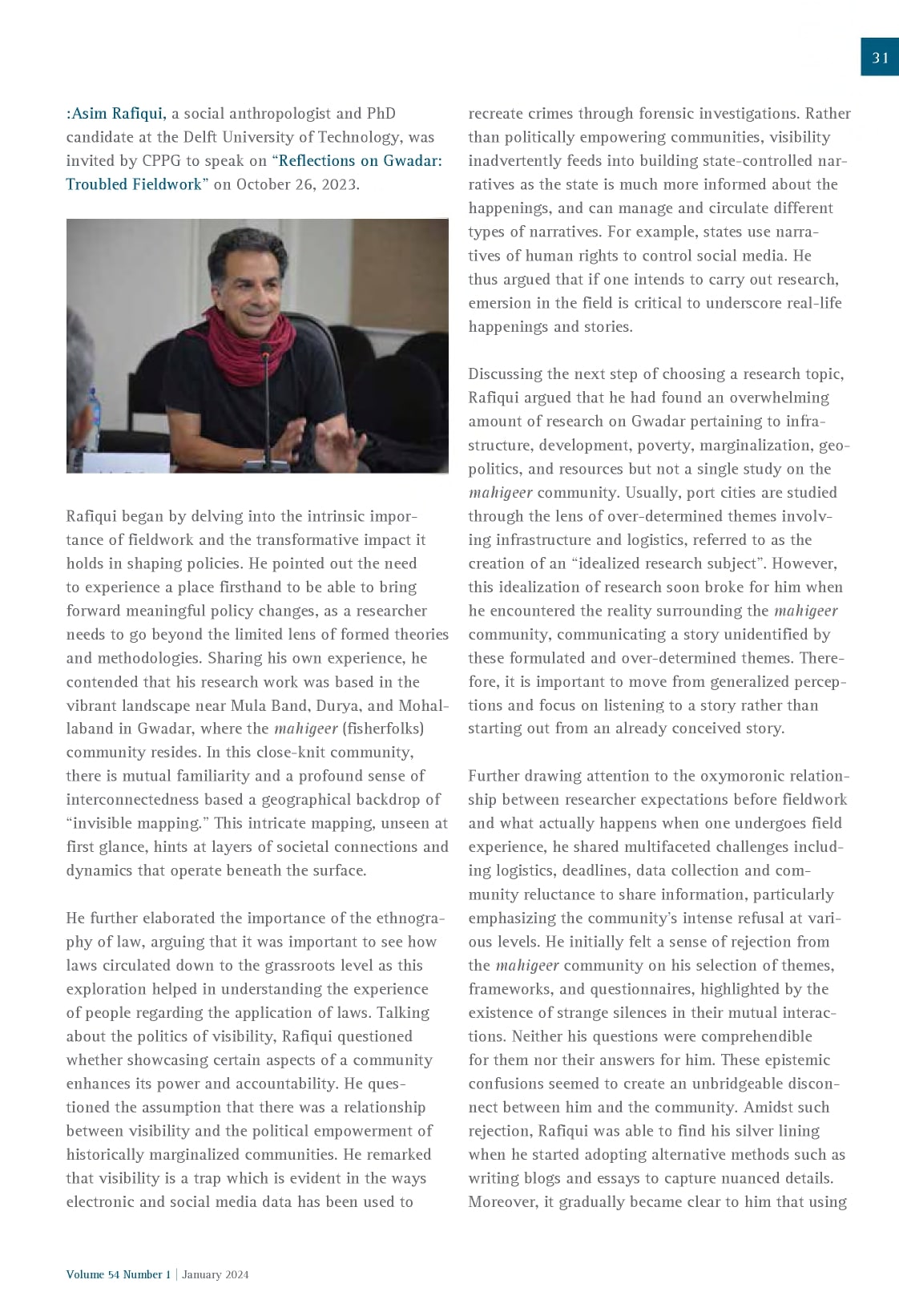
Reflections on Gwadar: Troubled Fieldwork
INTRODUCTION
Asim Rafiqui, a social anthropologist and PhD candidate at the Delft University of Technology, was invited by CPPG to speak on “Reflections on Gwadar: Troubled Fieldwork” Rafiqui began by delving into the intrinsic importance of fieldwork and the transformative impact it holds in shaping policies. He pointed out the need to experience a place firsthand to be able to bring forward meaningful policy changes, as a researcher needs to go beyond the limited lens of formed theories and methodologies. Sharing his own experience, he contended that his research work was based in the vibrant landscape near Mula Band, Durya, and Mohallaband in Gwadar, where the mahigeer (fisherfolks) community resides. In this close-knit community, there is mutual familiarity and a profound sense of interconnectedness based a geographical backdrop of “invisible mapping.” This intricate mapping, unseen at first glance, hints at layers of societal connections and dynamics that operate beneath the surface. He further elaborated the importance of the ethnography of law, arguing that it was important to see how laws circulated down to the grassroots level as this exploration helped in understanding the experience of people regarding the application of laws. Talking about the politics of visibility, Rafiqui questioned whether showcasing certain aspects of a community enhances its power and accountability. He questioned the assumption that there was a relationship between visibility and the political empowerment of historically marginalized communities. He remarked that visibility is a trap which is evident in the ways electronic and social media data has been used to recreate crimes through forensic investigations. Rather than politically empowering communities, visibility inadvertently feeds into building state-controlled narratives as the state is much more informed about the happenings, and can manage and circulate different types of narratives. For example, states use narratives of human rights to control social media. He thus argued that if one intends to carry out research, emersion in the field is critical to underscore real-life happenings and stories.
Citations

